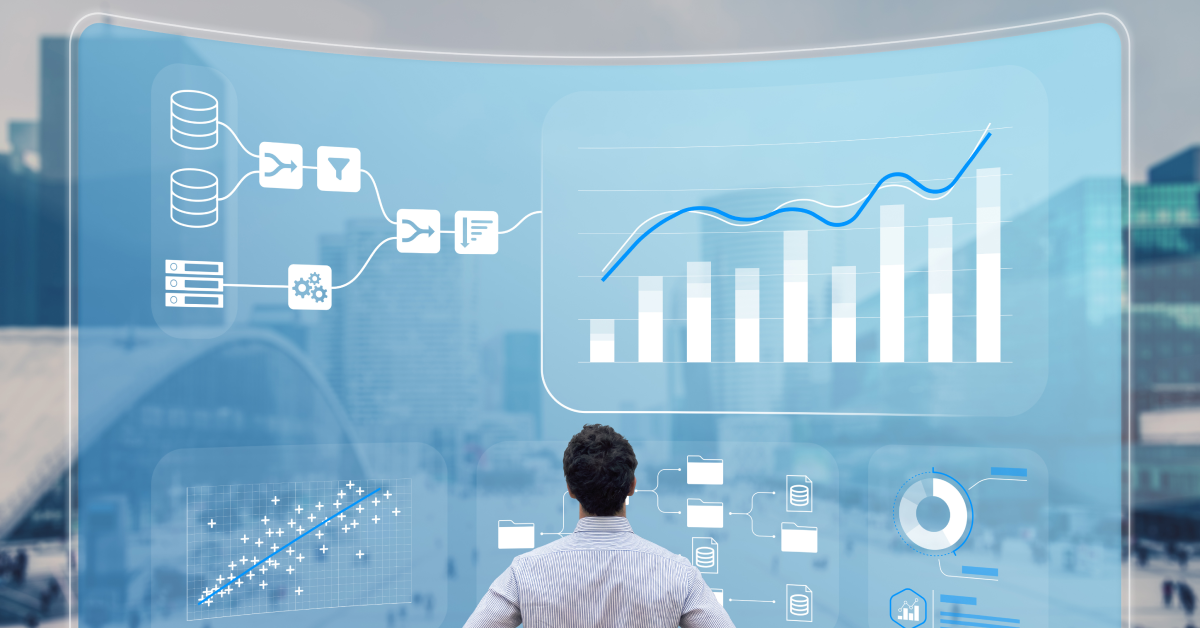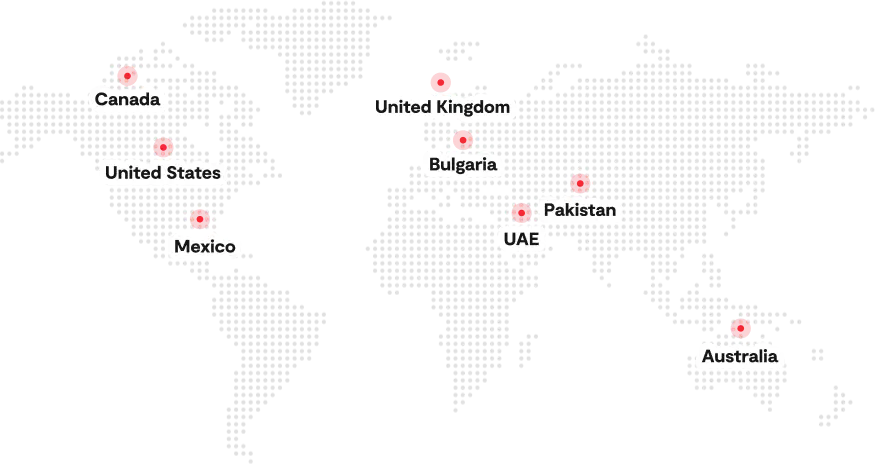The role of enterprise resource planning (ERP) systems has assumed critical importance in the fast-paced and elaborate digital world.
In the 1990s, ERP systems were considered primarily devices for handling accounting and human resources management in the manufacturing industry. However, they have become highly customizable tools that can integrate many departments simultaneously in a business.
As more enterprises strive for increased efficiency, scalability, and integration across their business operations, ERP solutions have become more than just manufacturing-centric. They encompass many other industries.
The definition of “ERP industry” stands for the totality of the territory populated by businesses that apply ERP systems to increase efficiency and accuracy in daily activities, optimize decision-making processes, and improve their competitiveness.
Nevertheless, these ERP systems are not typical one-size-fits-all solutions. In contrast, they provide a set of inclined and designed functions that are meant to address the distinct challenges and unique needs of various businesses.
Therefore, the question arises: How can we identify which industries could have the highest profit because they are implementing an ERP system?
The structure of this blog is based on this fundamental idea. Through the investigation of the many industries and their exclusive needs, we will be able to find the EVP benefits that can change operations and enable businesses to grow in all type of sectors.
The Versatility of ERP Systems
The fundamental idea of Enterprise Resource Planning (ERP) is a thorough software solution in which multiple business processes within different organization departments are integrated into and streamlined.
ERP systems are designed to enhance efficiency, improve the quality of decision-making, increase collaboration among entities, and ensure real-time visibility of business operations.
The Evolution of ERP Systems
Originally created in the 1990s to meet the needs of the manufacturing sector, ERP systems have witnessed a breathtaking transformation over time. It is incredible to witness the evolutionary process of accounting and HR tools, which were initially only designed for managing operations and became sophisticated and versatile systems to serve any ERP industry.
Technological Advancements Driving ERP Solutions
The agility of ERP systems is mainly attributed to the ever-increasing technological sophistication that drives their development.
Today, cloud computing, artificial intelligence, machine learning, and the Internet of Things (IoT) are part of modern ERP solutions that are more agile and scalable and address the varying needs of businesses in diverse industries.
The rapid pace of technological innovation is the key factor defining the diversity of ERP systems. Such developments allow ERP systems to provide improved functionality, performance, agility, and scale that can easily adapt to various industries.
For example, the benefits of cloud computing have completely changed how ERP systems are installed and managed. . Companies deploying cloud-based ERP solutions can make their systems available from remote locations, scale the resources based on their current needs, and enjoy flexibility and cost-effectiveness.
In addition, adaptive intelligence and machine learning incorporated in new-generation ERP systems empower businesses to manage routine tasks, examine many kinds of data, and gain critical insights that assist in decision-making and strategic planning.
Industry-Specific Advantages of ERP Implementation
ERP industry solutions offer a tailored approach to addressing different sectors’ unique needs and challenges, enabling businesses to streamline processes, enhance efficiency, and drive growth in their respective industries.
Manufacturing
In manufacturing, ERP industry systems are applied to achieve to-the-point production organization, i.e., with real-time data.
By integrating all these departments, manufacturers can fully take advantage of data gathered from procurement, inventory, production, or preparation planning to optimize resource utilization, reduce lead times, and increase productivity.
Implementing a robust manufacturing project management software can further streamline these processes, providing tools to manage resources, timelines, and workflows efficiently.
Retail
Instrument panel performance is indispensable in retail businesses’ ERP systems, especially for inventory management and customer relationship enhancement.
With point-of-sale integration, demand forecasting, and customer data analytics as their features, retailers can control their inventory levels, enhance customer satisfaction, and succeed in generating sales growth.
Healthcare
In the healthcare sector, IRP implementation was implemented to coordinate work activities and improve internal procedures and processes. These functions include interfaces like electronic health records (EHR), appointment scheduling, and endocrinology billing services. For regulated providers, infrastructure choices matter; referencing HIPAA hosting for U.S. hospitals helps frame secure, compliant deployments without changing the ERP’s core workflow.
Best EHR systems for small practices or best emr for small practice help healthcare providers optimize patient outcomes, simplify administrative tasks, and stay compliant with regulatory norms.
Construction
In the construction sector, ERP systems are good for crewing minimization and resource control. One of the primary advantages of construction digitization is the integration of functions like project planning, cost estimation, purchase of goods, and resource tracking that result in streamlined workflows, accurate estimates, and efficient delivery.
The Benefits of Industry-Specific ERP Solutions
Selecting an ERP industry solution offers several advantages tailored to the unique needs and challenges of different sectors:
Simpler Implementation
ERP industry software is predesigned for businesses in a particular area to incorporate functionalities that fit the purpose and require less time-consuming customization. It makes things easier and, therefore, speeds up the ERP implementation success and the time in which values are recognized.
Cost-effectiveness
In most cases, the ERP industry solution is a more affordable option than a general one because it focuses on issues that the generic version has never encountered. Thus, there is no need to undergo complex customization or connect with external applications.
This implies lowering the total cost of ownership while, at the same time, giving a chance to build a platform that specifically adheres to industry needs, enhances productivity, and more.
Understanding of Industry Needs
Technology providers specializing in a particular industry have a deep understanding of sector-specific challenges and objectives. This ensures that ERP solutions are designed to effectively address industry-specific needs, driving positive transformation and business outcomes.
Access to Best Practices
Another benefit of industry-specific ERP solutions is that vendors continually refine their solutions in line with industry norms and standards, incorporating best practices and insights gained from previous implementations. This enables businesses to leverage industry-specific ERP solutions and expertise and benefit from continuous improvements to their ERP systems.
Overcoming Industry Challenges with ERP
Enterprise Resource Planning systems (ERP) give businesses a shift in their ability to manage supply chains with the successes of specific industries and regulatory compliance through the integration of these solutions.
By using advanced ERP features and strategies, business performance can be improved, potential risks can be controlled, and all stakeholders can be by the law and regulations.
Supply Chain Management
ERP systems are a factor that cannot be overlooked when managing organizations’ supply chains. They help deal with logistics challenges and enhance operations.
SAP ERP gives a business the capability to design various supply chain management modules on an online platform. This makes it possible to automate the flow, increase visibility, and improve teamwork across the whole supply chain system.
Key functionalities include:
Addressing Logistics Complexities
ERP systems developed for supply chain management enable firms to monitor and control the flow of goods, data, and finances smoothly along their supply chain network.
Tools such as procurement management, inventory management, and logistics ERP systems help companies achieve their goals in this field by saving transport, warehouse, and distribution process steps.
Demand Forecasting and Inventory Control
ERP systems help to profit from better demand forecasting and inventory control via advanced analytics and forecasting algorithms, which improve the effectiveness of these functions.
Sales history, market data, and demand forecasts can be used to review supplies, prevent stockouts, and move the stock as fast as possible.
By taking this proactive approach to managing inventory, businesses are likely to reduce costs and maximize customer satisfaction.
Regulatory Compliance
Compliance with rules and regulations is essential for businesses operating in different sectors, and ERP systems prove to be very useful. By simplifying the processes involved in compliance, they ensure the business’s complete adherence to industry regulations.
Key aspects include:
Simplifying Compliance
ERP systems help make compliance with regulations easier by providing a single location for data management, automating regulatory reporting, and applying standardized practices across the organization.
By embedding compliance prerequisites into their operational routines, ERP systems assist businesses in ensuring uniformity, accuracy, and transparency of compliance reports.
Data Security and Privacy Standards
ERP systems are remarkable for ensuring the implementation of various types of access controls, encryption protocols, and audit trails that keep data secure and respect privacy standards.
With features like identity-based access control and data encryption, ERP systems help businesses defend against information leaks, prevent security risks, and comply with compliance demands like GDPR and HIPAA (hipa compliant video conferencing).
Choosing the Right ERP System for Your Industry
Selecting the right ERP system for your industry is a crucial decision that can significantly impact the success and efficiency of your business operations. To ensure that you choose an ERP solution that aligns with your industry-specific ERP solutions needs and objectives, consider the following factors:
Factors to Consider When Selecting an ERP System
Industry-Specific Functionality
Look for custom ERP systems, such as Folio3 Agtech ERP solution, with industry-specific functionalities that precisely reflect the needs of your business sector.
Determine if the ERP service offers modules and functional features that will address the issues and processes of your industry, such as manufacturing, retail, healthcare, or construction.
Scalability and Flexibility
Examine the ERP system’s level of scalability and flexibility so that it can be adapted and modified to meet growing business needs or changes in requirements.
It is selecting an appropriate solution that readily updates itself to incorporate new market tendencies, technological developments, and company growths without any severe disruption or extra specified cost of customization.
Integration Capabilities
Evaluate whether or not the ERP system is fully integrated to ensure that it can be connected to present software applications, possibly third parties, and external data if there is any.
Strive to find an ERP solution that both standardizes the integration protocol and includes a wide set of APIs, with the aim of fulfilling data transfer and interoperability.
Ease of Use and User Experience
Review the user-friendliness and intuitive nature of the system’s interface, which can also determine the effectiveness of the entire solution across your organization.
Thus, you need to review the solution’s usability and intuitiveness, which can ascertain how each department of your organization can adopt and accept it.
Select an option that gives your users access to a modern, intuitive UI, easy-to-customize dashboards, and role-based access controls, improving user productivity and satisfaction.
Data Security and Compliance
Implementing data security tools and compliance aspects should be the primary considerations when choosing an ERP system.
This is especially true if your industry is concerned with regulatory requirements such as the General Data Protection Regulation, the Health Insurance Portability and Accountability Act, or the International Organization for Standardization directives, just to name a few.
As you build your ERP solution, verify that it contains strong security, encryption methods, and audit trails so that the centralized data will be safe and in accordance with the regulations.
Vendor Reputation and Support
Data on the ERP vendor’s Reputation and track record in your sector is necessary to measure the confidence, experience, and customer satisfaction (of the ERP vendor and its customers) in your industry.
Select a respectable partner with a clear implementation record who operates a helpdesk and provides supportive services during the ERP implementation and after the project’s completion.
The Importance of Customization and Scalability in ERP Solutions
Customization and scalability of the ERP system are inevitably the most essential things the ERP industry would like to look at when selecting custom ERP systems.
Likewise, being aware that ready-made ERP solutions entail many integrated modules and functions, there is a high probability that customized features necessary for your business industry won’t come out of the box.
Executing the ERP system in your way and not someone else’s is called customization. Through customization, you can mold the system to fit your unique business processes, workflows, and ERP industry regulations.
An ERP system like Folio3 Agtech ERP solution allows you to modify your workflows and define processes. Its modular architecture will enable you to do just that without committing to extensive coding or customization.
Scaling is also taken into account, especially in industries that witness unforeseen cycles of demand within a specific period or are in the national phases of their fast growth.
Pick up custom ERP systems that grow in tandem with your business and are easy to scale even when transactions increase, user concurrency increases, and data storage requirements increase.
Folio3 Agtech ERP solution is considered the best ERP, and it is both adaptable and receptive to your long-term needs. Therefore, an ideal system will undoubtedly satisfy your past needs and reform to fit your future needs.
Tips for Successful ERP Implementation and User Adoption
While the promise of streamlined processes, enhanced efficiency, and improved decision-making is enticing, the path to ERP implementation success and user adoption is often fraught with challenges.
Let’s explore essential tips and best practices to navigate the complexities of ERP implementation and ensure seamless user adoption:
Executive Sponsorship and Leadership
Engage executive leaders and top management to drive implementation and commit resources to ERP projects, break all obstacles and challenges, and change the organizational culture to promote the involvement and accountability of the top management in the ERP project from the beginning. This will ensure a good level of adoption around the organization.
Comprehensive Planning and Project Management
Create a multifaceted roadmap that focuses on strategic goals, deadlines, and implementation plans as the focal point of the ERP rollout phase.
Designate a task force comprised of a multifunctional team to plan, coordinate, and monitor the realization process, identify and manage risks, and ensure the objectives are fulfilled. Additionally, consider using professional services automation software to further streamline project management, track progress, and allocate resources, ensuring the smooth execution of your ERP rollout
User Training and Support
Allocate resources for detailed user training and support programs to enable employees to acquire the necessary knowledge, expertise, and confidence to operate the ERP system at its high level.
Offering practical workshops, online tutorials, and customized manuals suitable to various user roles, targets, and levels of expertise encourages quick user adoption and limits resistance to change.
Change Management and Communication
Deploy solid change management approaches through communication plans, which include engaging stakeholders, managing expectations, and addressing concerns as the process unfolds.
Establish trust and support, ensure open dialogue, transparency, and collaboration to avoid resistance, and drive ownership within teams for the ERP project.
Continuous Improvement and Feedback
Encourage the culture of perpetual perfection by asking for user feedback, checking the main metrics, and redrawing processes of ERP systems based on knowledge and experience.
By including continuous monitoring, feedback subscription, and performance measurement methods, we should achieve alignment ( ERP system ) with the flux of business processes and the market.
Conclusion
The ERP system benefits extend far beyond any single industry, offering many advantages that can revolutionize business operations and drive long-term growth.
From streamlining production processes in manufacturing to enhancing customer relationships in retail and coordinating patient care in healthcare to optimizing project management in construction, ERP systems have proven invaluable tools for businesses across diverse sectors.
As businesses navigate the complexities of the modern marketplace, investing in an ERP system emerges not just as a prudent choice but as a strategic imperative for sustainable success.
By centralizing data, automating processes, and facilitating informed decision-making, ERP systems empower organizations to stay agile, competitive, and resilient in today’s dynamic business environment.
Therefore, businesses should view ERP systems as not merely software solutions but strategic investments for future growth and prosperity. By embracing ERP technology, businesses can unlock new opportunities, streamline operations, and unlock efficiencies that pave the way for sustainable success and innovation.
So, if you’re ready to embark on the journey of ERP implementation tailored to your industry needs, explore the diverse options available and connect with reputable ERP vendors who can guide you through the process.
Whether in manufacturing, retail, healthcare, construction, or any other industry, an ERP solution is waiting to transform your business and propel you toward greater success.
So, make the most of the power of ERP for a more efficient, competitive, and resilient future.
FAQs
What is the ERP Industry?
The ERP industry refers to the collective landscape of businesses, software vendors, consultants, and service providers involved in developing, implementing, customizing, and supporting Enterprise Resource Planning (ERP) systems.
Which Industries Use ERP Systems?
Enterprise resource planning (ERP) software is designed to help businesses manage their core processes more effectively. ERP systems are used in various industries, including manufacturing, distribution, retail, and healthcare. In the healthcare sector, solutions such as medical practice charting software are often integrated with ERP systems to enhance clinical documentation and operational efficiency.
Who Can Benefit from ERP?
Implementing an enterprise resource planning (ERP) system can benefit various industries and businesses of all sizes. ERP industry systems offer many advantages that enhance efficiency, productivity, and profitability across different sectors. Specifically, companies in manufacturing, distribution, retail, healthcare, construction, professional services, banking, consumer goods, and many others can benefit significantly from ERP software.
What Kind of Business Should Use ERP?
ERP industry systems can be incorporated into almost any industry, including mid-market and small businesses. Some sectors that have seen the most significant advantages from an ERP system are construction, banking, manufacturing, retail, consumer goods, and distribution companies.
Who Uses ERP the Most?
ERP industry systems are utilized across various departments and industries due to their versatility and comprehensive functionalities. They are mostly used by Finance, Human Resources, Customer Relationship Management, Supply Chain Management, Sales and Marketing, Manufacturing, the Education Sector, and Healthcare to streamline operations, improve decision-making, enhance collaboration, and drive organizational success.
How is ERP Beneficial in Large Enterprises?
ERP industry systems enable organizations to manage their resources, processes, and operations in one centralized system. This helps organizations improve efficiency and reduce costs. An ERP system also provides organizations with real-time visibility into their operations.
What is the Most Significant Benefit of ERP?
One of the primary advantages of an ERP system is that it allows companies to automate mundane, repetitive tasks. Built-in account reconciliation and transaction matching enable businesses to dramatically increase efficiency and speed up the financial close process.
Can you Use ERP in the Service Industry?
Modern ERP systems help businesses achieve more—95% of adopters in the services industry say that their business processes are improved. The right software solution will reduce the time you and your employees spend on non-billable work.
What are the Limitations of ERP?
- Cost: Implementing an ERP system can be costly in terms of the software and the time and resources needed for implementation and training across all departments and locations.
- Complexity: ERP systems can be complex, and users may require extensive training to use them effectively.
What is the Scope of the ERP Industry?
The ERP industry has a huge scope and helps fulfill various business needs. Production Department: It includes engineering, bills of material, scheduling, capacity, workflow management, quality control, cost management, manufacturing processes, manufacturing projects, and manufacturing flow.




